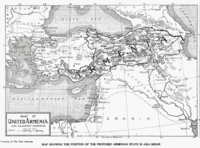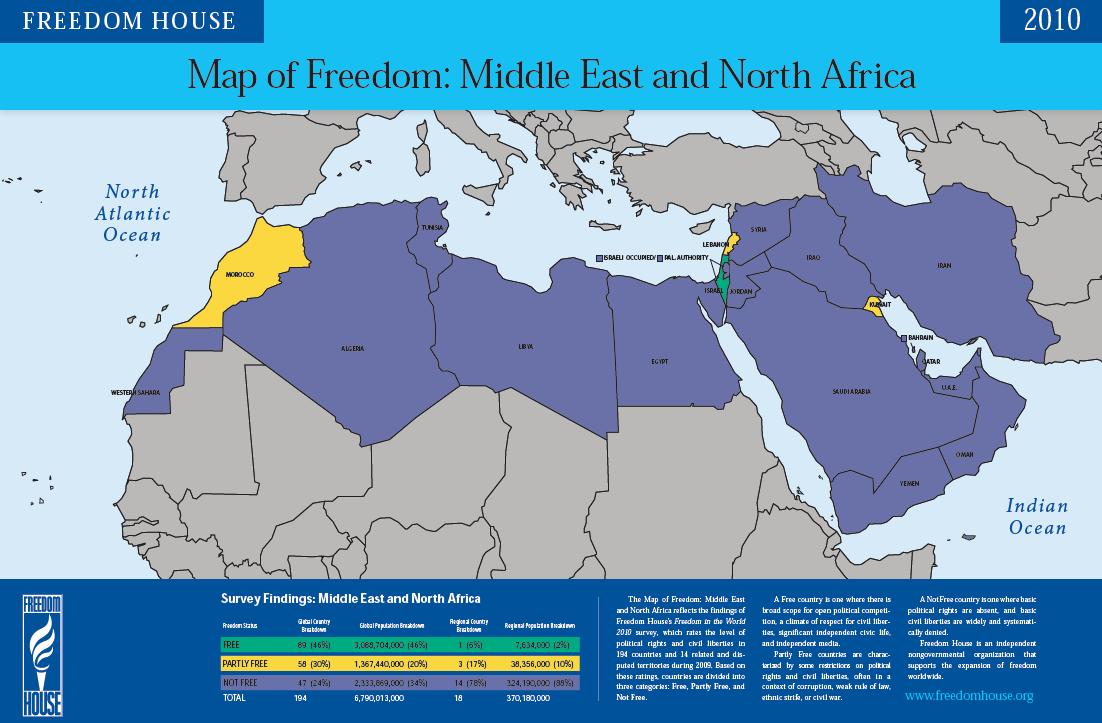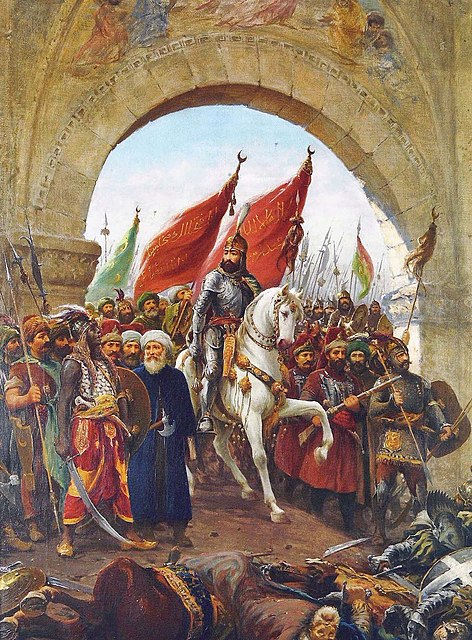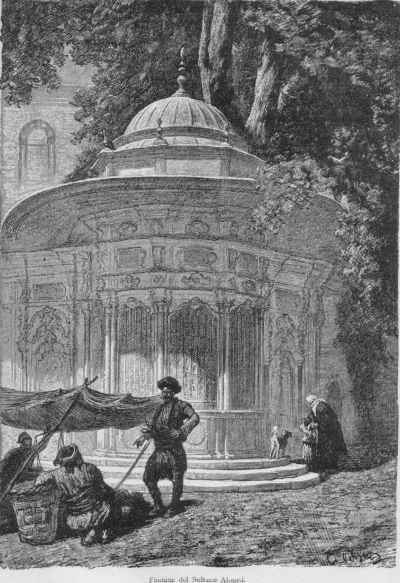The Arab Spring is a historic opportunity for elections to become the norm for the first time in multiple Arab countries. But far from the headlines, the most crucial actor in this epic drama is the one country that can claim a land border with the likes of countries as disparate as Greece and Iraq. Turkey has a long history as a leader of the Muslim world and the country must now be prepared to leverage its historical ties to the Arab world with the history of successful elections that links Turkey to the democratic world. If Turkey is to retake its place as the center of Muslim thought and power, as it has every right to do, it must stand up to the dictatorships on its borders and embrace its true allies in the democratic world.

For centuries, the border between the Turkish Ottoman Empire and Europe has represented the elastic and violent boundary between the Muslim world and the Christian one. And for a long time, the story was one of Ottoman advance into Christian territory. But behind the Christian front lines a revolution took place that would permanently alter this balance of power.
Less than one hundred miles from borders of the Ottoman Empire at its greatest extent, the people of northern Italy were in the midst of the Renaissance and the birth of modernity. For reasons that are not entirely agreed upon, the period of a rising Europe coincided with a period of Ottoman decline.
The Europeans, split among a dozen or so competing empires, would begin to introduce technologies that would eventually leave the Ottomans, the Arabs, and the rest of the world far behind. It was the Europeans who eventually would sit around the negotiating table following World War I and dismantle the Ottoman Empire for good. Take a look at the two maps of Greek and Armenian proposals after World War I to get an idea of what could have been. (See Maps) The humiliation of the colonial era is an experience shared by the world. For the Turkish, it represented retreat in an age old battle with Europe.
The 23st Century Turk
Yet, it seems history has a sense of irony and the modern day has turned these age-old rivalries on their heads. In the modern world there is a chance, if the Turkish government is willing to take it, for a greater Middle East to forever emerge from this period of relative decline. Even in its most glorious days of empire, Turkey has never had a better chance to lead the Arab world to brighter pastures. Yet ironically, despite centuries of religious conflict with Europe, the epic task of modern Turkey is to bridge the restrictive gap between the Arab world that suffered so much in the last few centuries and the modern democratic world starting with Turkey’s ancient neighbor Europe.

The truth is that modern Turkey is being left with few other options. Turkey’s foreign policy, recently seen as drifting away from Europe and the United States, has met with the grim reality of the world to its east. Turkey’s people and history may be closely tied with countries to its east but modern Turkey can find no real allies there. The Syria conflict is the clearest indicator of the gravity of the situation facing modern Turkey. Turkey had warming relations with the Syrian dictatorship until the Arab Spring but due to the horrific violence that Syria’s dictatorship has displayed, the democratic people of Turkey with a free press and freedom of expression have no choice but to be morally in support of the rebel calls for democracy.
Over the last few years Turkey and the rest of the world watched in awe as the hundreds of thousands of peaceful Syrians took to the streets calling for democracy only to be met with military-scale violence aimed at terrorizing the population into submission. Weapons of modern war, including tanks and fighter planes, have been turned upon the civilian population in full view of the cameras of thousands of mobile phones. Children are being tortured and rape is indeed used as a systematic weapon of government in a Muslim country.
Ancient Ottomans and Modern Turkey
The brutality of the Syrian regime makes the choice easy for any democratic people but the reaction of Turkey’s neighbors has shocked the Turks. Russia’s intervention in favor of Syria’s dictatorship is a clear symptom of Russia’s abandonment of democracy and a foreign policy that is keen to spread its significant oil money to prop up countries with a pliable dictator. There simply cannot be rapprochement between Turkey and Russia while Russia continues its slide back into the depths of dictatorship with intentions of interfering in every international conflict including in Turkey’s volatile backyard.

The Iranian dictatorship, the other major regional power, continues to be the primary and very public support for the dictatorship in Syria. The Syrian dictatorship may at this point qualify as a vassal state of the oil dictatorship in Tehran with highly trained Iranian special forces having already taken significant casualties inside Syria. The Turks also are fully aware that countries like Saudi Arabia and the Gulf states that support the opposition to Syria’s dictatorship do so for ethnic and military reasons rather than out of humanitarian concerns or support for democracy. These are not allies that can be relied upon.
The truth is that every country that once was part of the Ottoman Empire (excluding Israel) can only be described as absolute dictatorships. Two years ago, before the free elections of the Arab Spring, there was no Arab democracy. Therefore, Turkey’s true allies lie not in Russia, Iran, or even the dozens of remaining Arab dictatorships. Turkey’s allies are characterized solely by their relationship to democracy. And this is the opportunity that presents itself to Turkey today. Turkey can leverage its good relations with Europe and the broader democratic world in order to lead a historic transition to democracy in the Arab world.
Turkey is still nominally on track to join the European Union and is a member of the Council of Europe, NATO, OECD, OSCE, the G20 major economies, and the EU Customs Union while at the same time being involved outside Europe in organizations like the Turkic Council, Economic Cooperation Organization, and the Organization of Islamic Cooperation. Turkey can leverage its unique history and lead the Middle East into the arms of the democratic world where a true revival of exceptionalism can be realized. By offering democracy as an olive branch to the Kurds and Armenians as well as to the Shiite world, modern Turkey can build the bridges necessary for peace and good government throughout the region. Such an effort could truly be the Turkish people’s greatest accomplishment in a long and storied history.
The Arab world has been in relative withdrawal from the heights of technology, wealth, availability of a good education, and many other indicators for far too long. It is through democracy that Turkey can return to its rightful place as a shining capital of the Arab world, the European world, and most importantly, the democratic world. The great game between dictatorship and democracy is ongoing and Turkey represents many countries that straddle these fault lines across the world. It is up to Turkey and other countries like it to lead the way to a more democratic world.
Here is a bonus for your enjoyment:
An Ottoman Empire picture gallery






DAN 1 says
Great article. If I had to pick one favorite sentence in it, I would choose: “Even in its most glorious days of empire, Turkey has never had a better chance to lead the Arab world to brighter pastures.”
Spoken like a True Nomad, Adrian Tawfik. It stirred my own ancient impulses and appreciation of those older Turks, the “Kok Turks”…or “Blue Turks”. Old and wild and antecedent to the Mongols of Genghis Khan and even the Huns of Attila.
Also, I think you are right about Turkey’s potential in Our Own Times.
Munir says
Great Article…..I really liked it.